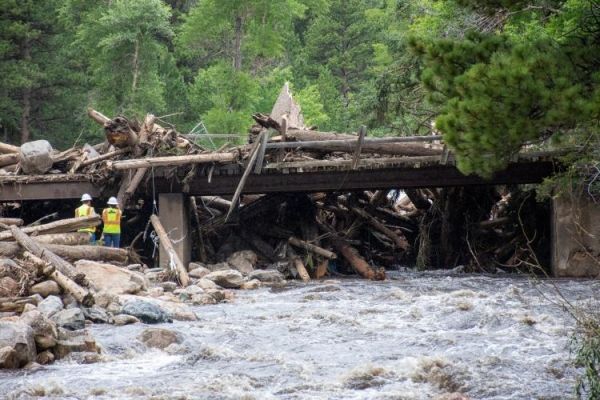But last week, fires weren’t the issue—it was their aftermath. When heavy rains fell over the burn scar from the 2020 Cameron Peak fire, they triggered flash flooding and mudslides northwest of Fort Collins which destroyed homes, killed at least three people and damaged major roads. Flooding along the 2020 Grizzly Creek and East Troublesome burn scars also unleashed mudslides across Interstate 70 through Glenwood Canyon and in Grand County just west of Rocky Mountain National Park.
These tragic events make it clear that the effects of wildfire don’t end when the flames go out. There can be environmental consequences for years to come—and keeping an eye on water is key.
CU Boulder Today spoke with Professor Fernando Rosario-Ortiz, an environmental chemistry expert who studies how wildfires impact water quality; and Assistant Professor and CIRES Fellow Ben Livneh, a hydrologist who studies how climate change affects water supplies and how fires and rain influence landslide risk, about how fire may shape the future of water in the West.
Continue reading at University of Colorado at Boulder
Image via University of Colorado at Boulder


